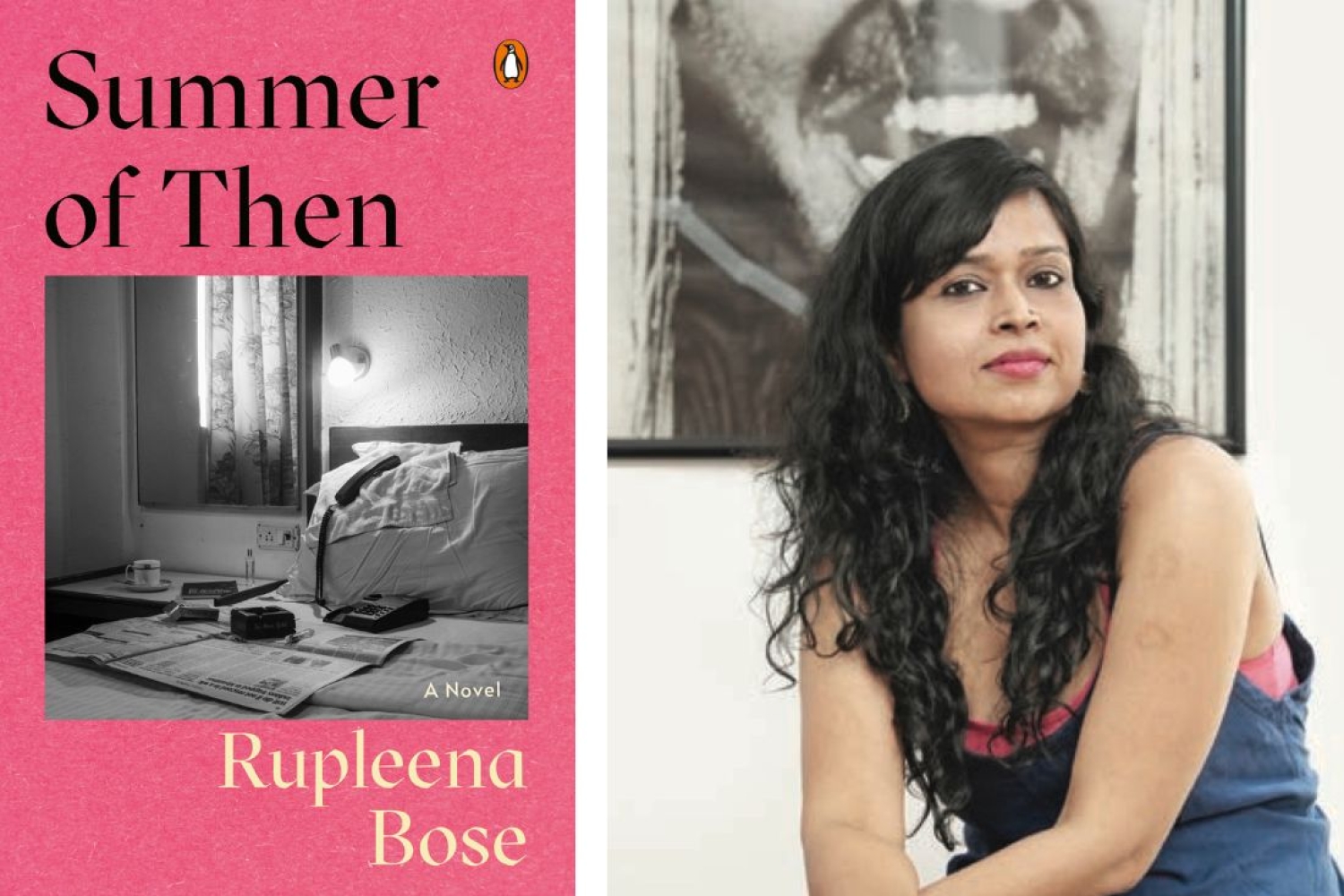

An English professor at the University of Delhi, Rupleena Bose immerses herself in stories daily. Her debut novel, Summer of Then, was a natural progression of her life. The novel deals with the narrator’s daily life drama as a university professor, the politics that unfold in academia and in her romantic life. Against the backdrop of sexual assaulttrauma, the novel offers a sharp observation of contemporary life in Indian metropolitan cities from 2010 to the onset of the 2020 pandemic. Below, Bose shares her insights on writing, desires and themes that encapsulate her book.
ON WRITING
Stories have always been my bread, butter and pleasure. I have been teaching literature for many years and thinking about novels has been a part of my daily life. Novels are realtangible entities for me. Over the years, I have had characters and their journeys as a part of my subconscious. It was a matter of finding the time to sit down, craft them togetherin the canvas of a single narrative.
Also, at one point, I wrote screenplays, so I have always enjoyed creating a fictional universe. However, film is not really writers’ medium. Films are bound by a larger set of considerations and in a way that realisation freed me. It helped me think afresh. Hence when I took a break to work on my PhD was when I tried my hand at writing a novel. I started a different manuscript, which was very different from Summer of Then but then kept it aside for various reasons and started this one. I wanted to write about a person’s life between their early twenties to mid thirties as that is such an exciting time in terms of discovery and the fact that you can be whoever you want to. That’s how it began, a young girl getting into her first job and not so sure that’s what she wants to be defined as. Once I had the voice of the protagonist, I went along and the story sort of wrote itself.
DESIRE FOR BEING FREE
One of the primary themes in this novel is of desire. I don’t mean just women’s desire but desire and longing which make people take decisions which are often flawed. Women are mostly expected to behave in a certain way and the protagonist is someone who is often defying societal morality. Not so much out of a desire to rebel, rather it is a refusal to fit in the boxes that society reserves for women. Also, this story is about the interior life of a woman, which includes things she can’t utter to other people.
So yes, broadly this novel is about a protagonist who is fairly imperfect in her actions, more so as she tries to follow the path of domesticity and marriage charted for her but eventually finds that it might not be for her and this novel would be a part of the larger conversation about the dilemma between what is moral and what is immoral, especially for a young person in her thirties and how that also changes the lives of people around her.
ART AND LIVELIHOOD
The entire narrative is a struggle between livelihood and art for a young person. The protagonist’s journey is also one where she is finding her voice and that voice is also onewhich negotiates between her interior world and the larger events that is taking place outside. The ‘personal’ and the ‘political’ is a continuous presence in her observations and her realisation of times changing over the decade in her life. Salman’s murder, in a way, brings her face to face with the biases of the world in a way that she had not imagined. It shatters her comfort and infringes into her comfort zones as a student and a teacher. It also leads to a larger realisation that the country was changing and equal spaces are a privilege.
This is an all exclusive excerpt from our May 2024 Bookazine. To read the entire article, grab your copy here.
Words Paridhi Badgotri
Date 01.05.2024